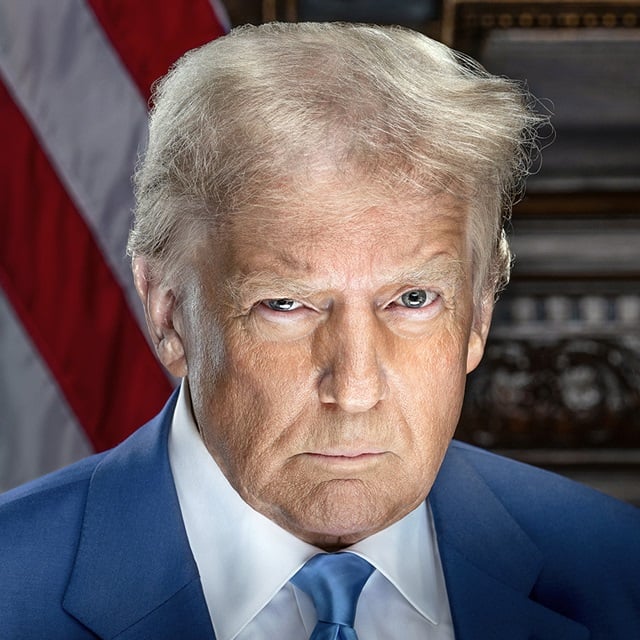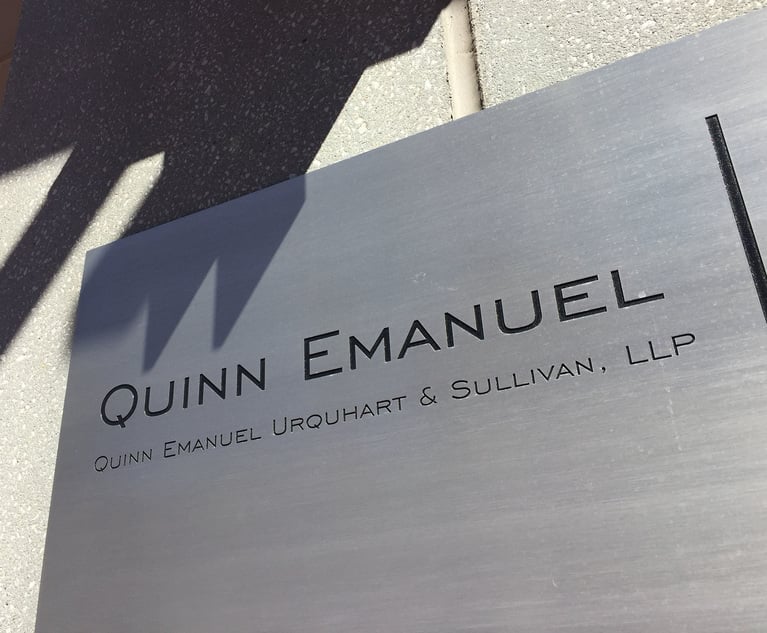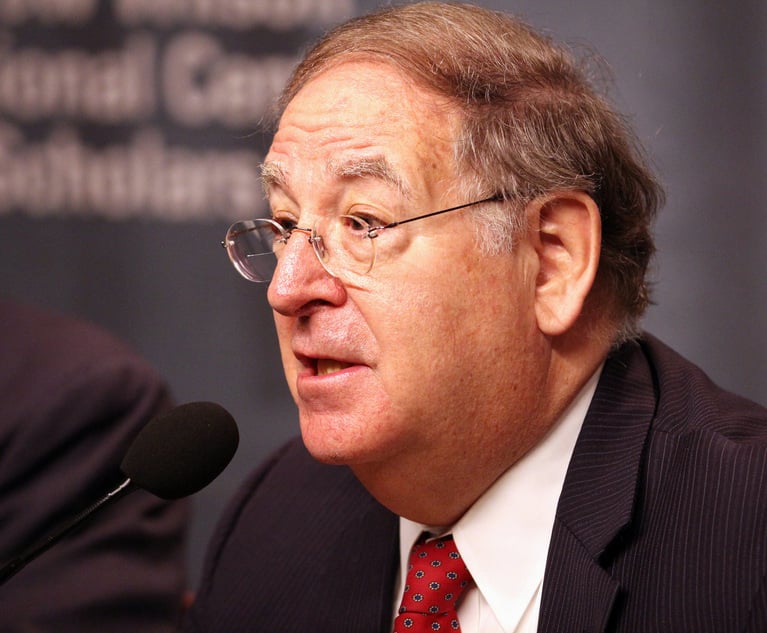Labaton Sucharow Wants State Street Judge Recused After He Hinted at 'Public Corruption'
Labaton Sucharow has moved for a federal judge reviewing its billing records to recuse himself from a securities class action settlement, citing a “serious conflict” raised by statements from the judge, which the firm said implied that the New York law firm was engaged in public corruption.
June 15, 2018 at 07:46 PM
5 minute read

Labaton Sucharow has moved for a federal judge reviewing its billing records to recuse himself from a securities class action settlement, citing a “serious conflict” raised by statements from the judge, which the firm said implied that the New York law firm was engaged in public corruption.
According to the motion, remarks made by U.S. District Judge Mark Wolf of the District of Massachusetts at a May 30 hearing raised “a legitimate concern as to whether Labaton will receive a truly impartial review.”
The statements at the center of the dispute were made during an exchange between Wolf and George Hopkins, the executive director of the lead plaintiff, the Arkansas Teachers Retirement Fund. According to the motion, Wolf's decision to force Hopkins, to testify “gives rise to an inference that the court is already predisposed toward finding misconduct on the part of Labaton.”
The motion, originally filed on June 8, was one of several documents unsealed by Wolf on Friday. The unsealed documents relate to an investigation begun a year ago into allegations of potential overbilling in a $75 million fee request made by Labaton Sucharow and two other law firms, San Francisco's Lieff Cabraser Heimann & Bernstein and the Thornton Law Firm in Boston. Those three firms have served as lead plaintiffs counsel in cases against State Street Corp. To spearhead the overbilling probe, Wolf brought in a special master, Gerald Rosen, a retired federal chief judge from the Eastern District of Michigan, who filed his 377-page report on May 14 under seal.
Labaton Sucharow's recusal motion also indicated that class counsel would be seeking an accounting of the $3.8 million they have spent to fund the special master's report.
“That millions of dollars paid by customer class counsel have been expended on the master's investigation without a suggestion of, or a shred of evidence to support, public corruption is telling,” the motion continues.
Wolf appears to be focused on the report's finding of an undisclosed payment that went to a lawyer for a referral. According to a transcript of the May 30 hearing, Wolf said he could end up returning a “significant amount of money” to class members. In the motion unsealed on Friday, Labaton Sucharow indicated in a footnote that the special master has proposed a $4.1 million cut, the “same amount as the fee paid to the referring firm.”
Wolf has set a closed hearing for June 22.
The unsealed documents and transcript of last month's hearing unveiled some of the report's findings. Lawyers are still fighting over what should be redacted before a public version gets released.
Wolf had ordered Hopkins to show up in person to address whether, given the findings of the report, the judge should replace class counsel, and the lead plaintiff, in light of a potential conflict of interest. Hopkins, in a June 6 affidavit, said he had retained outside counsel to handle questions relating to the special master's report but insisted that the Arkansas pension fund could continue to adequately represent the class.
Hopkins' counsel, Thomas Hoopes of Boston's LibbyHoopes, declined to comment.
At the May 30 hearing, according to a transcript, the judge's primary focus was on having Hopkins explain the “origins and evolution” of the Arkansas pension fund's relationship with New York-based Labaton Sucharow. He also wanted to know more about what he called the “referral fees.”
Wolf's focus was on a retired state legislator named Steve Faris. In particular, he wanted to know how much Hopkins had talked to Faris about the law firms handling of the pension fund's class actions.
“Did he ever tell you that he had a role in introducing Labaton to Arkansas Teacher?” Wolf asked according to a transcript of the hearing.
“No, he never told me that, ” Hopkins answered, referring to Faris.
Later in the hearing, Hopkins told the judge in sworn testimony: “I have never asked a law firm to hire some attorney. I have never asked a law firm to make a political contribution.”
“I chose the law firm that would proceed in this case, because I interviewed several,” he added.
According to the transcript of the sidebar discussion, Labaton's attorney, Joan Lukey, of Boston's Choate Hall & Stewart, said she was shocked at the judge's remarks at the hearing.
“You're suggesting public corruption,” she replied. “Honestly, your honor, I am appalled that that was even said.”
Labaton Sucharow, in a statement, called the judge's suggestion that a payment may have led to the firm's hiring as “baseless.” Further, the firm wrote, “there is no mention of any such influence payment in the special master's exhaustive report, which remains under seal” and “not a single finding suggesting that attorneys' fees awarded by the court were used to pay elected or other officials.”
This content has been archived. It is available through our partners, LexisNexis® and Bloomberg Law.
To view this content, please continue to their sites.
Not a Lexis Subscriber?
Subscribe Now
Not a Bloomberg Law Subscriber?
Subscribe Now
NOT FOR REPRINT
© 2025 ALM Global, LLC, All Rights Reserved. Request academic re-use from www.copyright.com. All other uses, submit a request to [email protected]. For more information visit Asset & Logo Licensing.
You Might Like
View All
Trump Administration Faces Legal Challenge Over EO Impacting Federal Workers
3 minute read
Private Equity Giant KKR Refiles SDNY Countersuit in DOJ Premerger Filing Row
3 minute read
Quinn Emanuel Files Countersuit Against DOJ in Row Over Premerger Reporting
3 minute read
'Thoughtful Jurist': Maryland US District Senior Judge Messitte Dies After Short Illness
4 minute readTrending Stories
- 1Am Law 200 Firms Announce Wave of D.C. Hires in White-Collar, Antitrust, Litigation Practices
- 2K&L Gates Files String of Suits Against Electronics Manufacturer's Competitors, Brightness Misrepresentations
- 3'Better of the Split': District Judge Weighs Circuit Divide in Considering Who Pays Decades-Old Medical Bill
- 4Which Georgia Courts Are Closed Today?—Here's a List
- 5After DEI Rollbacks, Employment Lawyers See Potential For Targeting Corporate Commitment to Equality
Who Got The Work
J. Brugh Lower of Gibbons has entered an appearance for industrial equipment supplier Devco Corporation in a pending trademark infringement lawsuit. The suit, accusing the defendant of selling knock-off Graco products, was filed Dec. 18 in New Jersey District Court by Rivkin Radler on behalf of Graco Inc. and Graco Minnesota. The case, assigned to U.S. District Judge Zahid N. Quraishi, is 3:24-cv-11294, Graco Inc. et al v. Devco Corporation.
Who Got The Work
Rebecca Maller-Stein and Kent A. Yalowitz of Arnold & Porter Kaye Scholer have entered their appearances for Hanaco Venture Capital and its executives, Lior Prosor and David Frankel, in a pending securities lawsuit. The action, filed on Dec. 24 in New York Southern District Court by Zell, Aron & Co. on behalf of Goldeneye Advisors, accuses the defendants of negligently and fraudulently managing the plaintiff's $1 million investment. The case, assigned to U.S. District Judge Vernon S. Broderick, is 1:24-cv-09918, Goldeneye Advisors, LLC v. Hanaco Venture Capital, Ltd. et al.
Who Got The Work
Attorneys from A&O Shearman has stepped in as defense counsel for Toronto-Dominion Bank and other defendants in a pending securities class action. The suit, filed Dec. 11 in New York Southern District Court by Bleichmar Fonti & Auld, accuses the defendants of concealing the bank's 'pervasive' deficiencies in regards to its compliance with the Bank Secrecy Act and the quality of its anti-money laundering controls. The case, assigned to U.S. District Judge Arun Subramanian, is 1:24-cv-09445, Gonzalez v. The Toronto-Dominion Bank et al.
Who Got The Work
Crown Castle International, a Pennsylvania company providing shared communications infrastructure, has turned to Luke D. Wolf of Gordon Rees Scully Mansukhani to fend off a pending breach-of-contract lawsuit. The court action, filed Nov. 25 in Michigan Eastern District Court by Hooper Hathaway PC on behalf of The Town Residences LLC, accuses Crown Castle of failing to transfer approximately $30,000 in utility payments from T-Mobile in breach of a roof-top lease and assignment agreement. The case, assigned to U.S. District Judge Susan K. Declercq, is 2:24-cv-13131, The Town Residences LLC v. T-Mobile US, Inc. et al.
Who Got The Work
Wilfred P. Coronato and Daniel M. Schwartz of McCarter & English have stepped in as defense counsel to Electrolux Home Products Inc. in a pending product liability lawsuit. The court action, filed Nov. 26 in New York Eastern District Court by Poulos Lopiccolo PC and Nagel Rice LLP on behalf of David Stern, alleges that the defendant's refrigerators’ drawers and shelving repeatedly break and fall apart within months after purchase. The case, assigned to U.S. District Judge Joan M. Azrack, is 2:24-cv-08204, Stern v. Electrolux Home Products, Inc.
Featured Firms
Law Offices of Gary Martin Hays & Associates, P.C.
(470) 294-1674
Law Offices of Mark E. Salomone
(857) 444-6468
Smith & Hassler
(713) 739-1250










